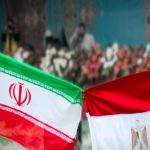Through several meetings, the Israeli officials have repeatedly called on the United States for an alternative plan for the failure of the talks, but have so far failed to do so due to the United States’ lack of serious and strategic willingness to intervene militarily in the Middle East and its plan to reduce its military presence in the region.
Faraan Zionist Research Base; Dr. Alireza Arab, a journalist and an expert on regional issues, analyzed ‘Israel’s confrontation with the strategies of the new US administration.’ The text of the analysis is as follows;
The Israeli newspaper Hume wrote on Sunday, 23 October, 2021: Israel is worried that the United States will agree to a worse deal with Iran than the ‘Joint Comprehensive Plan of Action’, so Naftali Bennett has decided not to meet with Biden’s special envoy for Iran, Robert Malley, to show her opposition towards reviving the Iran deal.
Robert Malley is on a regional trip to Israel, and Bennett will not meet with him to emphasize Israel’s strong opposition to any form of revival.
Nevertheless, the Secretary of Defense, Benny Gantz and Eyal Hulata, the Bennett administration’s national security adviser, will meet with a number of officials from Mossad’s security agencies and the Israeli Foreign Ministry to discuss the Iranian issue with Robert Malley. According to Israel Hume, the Israeli government urges the United States not to rush into an agreement with Iran. Israeli officials are also unhappy that the United States apparently has no intention of imposing talks on missile capability and Iran’s presence in Syria.
Now the main question is: how is the new administration of Naftali Bennett’s response to the new US government’s strategies evaluated? Israel must move in the new American political perspective. Therefore, in the four priorities related to the West Asian region, it must implement its strategies with the Biden government:
1. Restoring Relations with the Democratic Party of America: This matter is essential for Israel.
2. The Palestinian issue: The US emphasis on maintaining a two-state solution has caused Israel to face serious challenges in the face of the new US administration.
3. Expanding normalizations: based on its new US strategy of focusing on China and East Asia and reducing its military presence in the Middle East, and emphasizing maintaining and strengthening its intelligence and security presence in the region, Israel seeks to provide military, technical, technological and economic assistance to the US Arab allies, and fill the vacancy of America as much as possible.
4. Iran Issue: (Nuclear Industry – Missile Project and Regional Influence) from the fact that the United States has reduced its willingness to use military force and coercion in the Middle East compared to the past, its main priority now is China and East Asia. And its emphasis is on reviving the Iran deal and using the diplomatic option and finally use economic sanctions in the face of Iran, so in this area, Israel is facing many problems and complexities in the face of the United States.
1- Revive relations with the Democratic Party of America
The situation has changed and now Israel is much less bipartisan in the American politics than in the past. Whereas before, Israel used to be a strongly bipartisan issue, supported by both the Republicans and Democrats.
The Republican support remains strong, but there is a rift within the Democratic Party over the ‘US support for Israel.’
Although the Progressive Democratic Party includes people such as Rashida Tlaib, Ilhan Omar and Bernie Sanders in the minority, the minority is expanding and increasingly critical of Israel due to the sociological and political changes within the American society. Of course, the support for Israel remains strong among the mainstream Democratic Party of Congress.
The political landscape in America has changed. It is essential for Israel to restore its position with the Democratic Party. Therefore, it is necessary for them to establish relations with the left wing or the extremists of the Democratic Party. During a recent vote in the US Congress on the inclusion of the Israeli Iron Dome defense budget in the main budget bill, the hardline minority of the Democratic Party did not vote for it and opposed it, and this symbolizes the weakening of support for Israel by the Democratic Party. Therefore, the legislators had to vote for the budget of the Iron Dome separately from the budget bill of the whole country in order to approve it. Finally, the budget of the Iron Dome was approved with more than 420 votes in favor and 9 against, 9 of which were from those Democratic Party extremists. So now Israel is much less a bipartisan issue in the United States than before.
The Iron Dome is a fully-fledged defense system that allows Israel to defend its towns and cities from missiles by the resistance groups. Even from the point of view of some US lawmakers, if Israel did not have such an air defense system, it would have no choice but to send ground forces to Gaza to destroy the capabilities of Hamas and other resistance groups in order to eliminate the source of the missile fire on the Israeli citizens, and the impact of such a necessary attack would be extremely deleterious, especially for the Palestinians living in Gaza.
The major question is:
When the Democratic Party does not defend the budget of a defense system that is vital to Israel’s security, will it defend the supply of offensive weapons to Israel, such as precision-guided weapons or more advanced aircraft or more refueling tanks needed for long-range military strikes?
It seems the Americans, both Democrats and Republicans, will continue to defend the provision of the defensive and offensive weapons to ensure Israel’s security and they will approve them. However, the debate and criticism of Israel’s arms needs will intensify. And this shows the vulnerabilities of Israel’s position to the US officials and lawmakers, especially the Democratic Party and its hardline faction, which are considered as major challenges for Israel in the medium and long term.
It is worth noting that the weakening of Israel’s position with the Democratic Party has two main reasons:
a) It is a reaction to Trump’s policy of politicizing Israel and, with its unconditional support, damaging his position with the Democrats. Trump is inherently divisive, and his support undermined Israel’s position among the Democrats. And, of course, Netanyahu, the former prime minister of the Zionist regime, reciprocated this vulnerability by establishing a special relationship with Trump.
b) In the heart of the American society, sociological developments have led the young, educated, and second-generation immigrants to criticize Israel and its actions. Owing to this fact, that unconditional traditional support for Israel will erode over time. In the heart of the American society, the extremist groups, Democrats and critics of Israel, and supporters of the Palestinians are challenging the model of the new social and civil movements in Israel.
Therefore, Israel intends to focus on presenting its image in the United States and try to present a different image of the Netanyahu government to the Democratic Party and public opinion. Likewise, it seeks to emphasize the nature of the current changed government, which consists of eight parties from the various right-wing, moderate, left-wing, and Arab spectrums, as a symbol of democracy. Other than this, it also wishes to increase the relationship of the leftist, moderate and Arab Knesset representatives with their American counterparts, especially from the Democratic Party. Moreover, it wants to expand the normalization process at the regional level as a model for peace and stability, to reduce tensions, and to maintain the prospect of a two-state solution to the Palestinian question.









